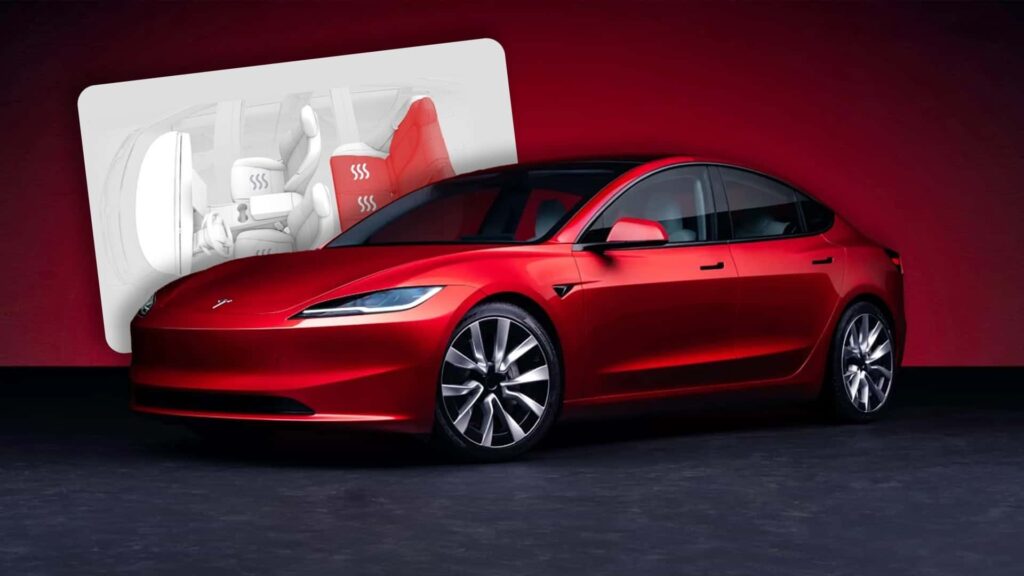Tesla may soon begin charging new Model 3 owners for heated front seats and heated windshield wipers, according to findings uncovered in the automaker’s newest 2023.38.8 vehicle software update.
Well-known Tesla hacker GreenTheOnly uncovered the possibility of these upcoming changes after digging into the all-electric automaker’s latest software update. Green has previously used this tactic to unwrap hidden future features that are pre-baked into the software ahead of a product release of feature activation, though this newest discovery might upset future owners not expecting to pay extra for these cold weather features – if, Tesla follows through with charging for them, of course.
Tesla is no stranger to software-locking factory-installed hardware behind a paywall, such as the footwell lights in the Model 3, or additional battery capacity in older Tesla Model S and X vehicles. In the past, it has even charged for heated seats –specifically, rear seats in lowered-trimmed Standard Range Model 3 variants. However, Tesla stopped charging for heated rear seats in 2022.
It’s not guaranteed that Tesla will charge for these features, however, Green’s findings indicate that the logic is already embedded in the software update, so the thought has crossed the automaker’s mind. And if implemented, it would mark the first time that Tesla charges for heated front seats (or wipers, for that matter).
Likely, Tesla may be considering dropping these features to lower the base price of its Model 3 even further while still allowing for the possibility of additional revenue after the vehicle is sold. Convenience features like heated seats, interior lighting, and sound systems have historically been Tesla’s go-to cost-cutting measure in the past.
Another surprising discovery in the software update was that the Model Y appears to have a software-locked battery capacity for its Standard Range trim. As we mentioned, Tesla has taken this approach in the past. This particular decision could be a result of scaling out the Model Y’s not-so-serviceable structural battery pack, meaning it could be cheaper for Tesla to remain consistent in its production methods across trims and software-lock the pack rather than modify production for different trims and ranges.

There’s currently no mention of how much this feature might cost, if it could apply to used cars in Tesla’s inventory, or how soon it could be implemented.
As we mentioned, Green’s discovery isn’t gospel that Tesla will make the switch to the paid model for heated seats and heated wipers, though it is a good indication that it could happen. And in typical Tesla fashion, if the automaker chooses to charge for these features, there’s no guarantee that it won’t end up being a no-cost feature later on—just like what happened with heated rear seats.

